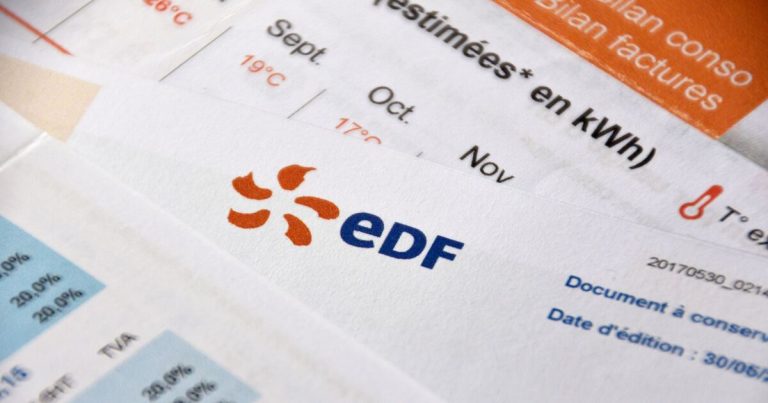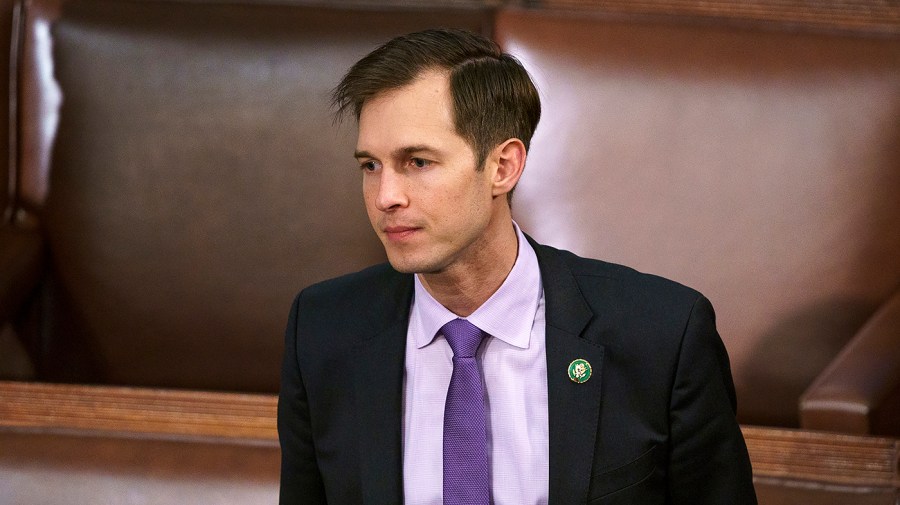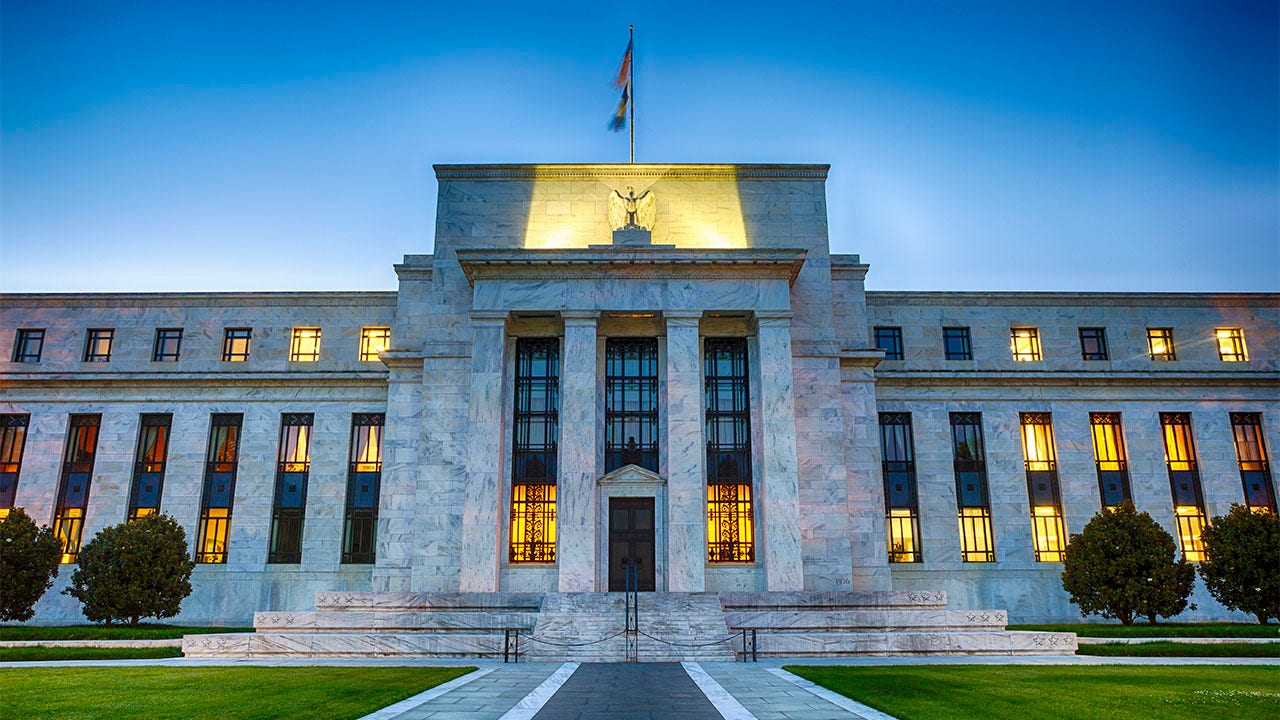
Unicoin founder Moe Vela says cryptocurrency is still the ‘future’ of the market despite the fall of Sam Bankman-Fried.
Custodia Bank, a Wyoming crypto bank that has been locked in legal combat with the Federal Reserve for nearly two years, is considering an appeal of a district judge’s decision to deny it access to the Fed’s banking facilities, FOX Business has learned.
Custodia, one of four crypto banks in Wyoming, tells FOX Business it believes the judge’s decision was wrong, and it’s considering all of its options, including an appeal.
“If this decision stands, only the big, leveraged New York banks at the center of the financial system will be allowed to bank the crypto industry through the bitcoin ETFs,” a Custodia spokesman told FOX Business. “And they do this without the risk management protections that Wyoming banks proposed.”
A win for Custodia would have been a milestone achievement for the $2 trillion crypto industry which, until the Securities and Exchange Commission’s January approval of 11 bitcoin ETFs, has been largely shunned by Wall Street and the traditional banking system, deemed too much of a fringe and mistrusted industry by the federal government.
CRUZ, GOP SENATORS DOUBLE DOWN ON ANTI-CENTRAL BANK DIGITAL CURRENCY LEGISLATION
Custodia is not guaranteed to win an appeal. Legal experts who have been following the case believe the bank may indeed have credible grounds for appeal based on what they’re calling a baffling change of heart by Judge Scott Skavdahl.
“The judge’s decision is completely wrong,” former Pennsylvania Sen. Pat Toomey told FOX Business. “It was contradictory and inconsistent with his decision in June when he denied the Fed’s request to dismiss the case. There’s no logic here at all, and I hope Custodia decides to appeal.”
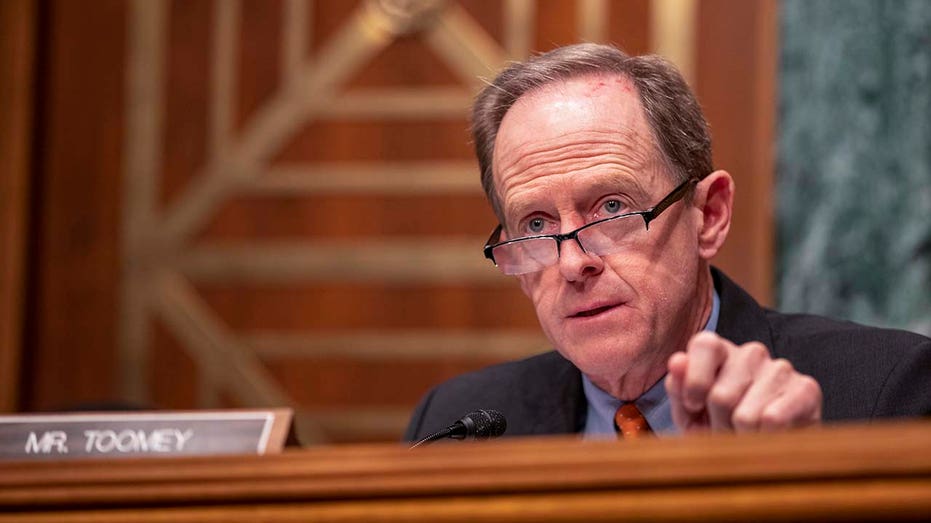
Pat Toomey, known for his pro-crypto policies while in Congress, retired from the Senate in January 2023. (Tasos Katopodis/Getty Images / Getty Images)
Toomey, known for his pro-crypto policies while in Congress, retired from the Senate in January 2023 and now sits on the boards of crypto exchange Coinbase’s Global Advisory Council and crypto investment firm Paradigm.
He was also one of a handful of Republican lawmakers, alongside senators Cynthia Lummis of Wyoming and Kevin Cramer of North Dakota and Rep. Warren Davidson of Ohio, to write an amicus brief in support of Custodia in its bid to get access to the Fed’s banking services. The brief argued that Congress intended for all banks to get equal access to the Fed’s payment system on a non-discriminatory basis.
Lummis, in a Friday post on X, expressed her disappointment with the judge’s ruling.
“Wyoming SPDIs have the right to access master accounts,” she wrote. “It is past time the Fed follows the laws passed by Congress.”

Sen. Cynthia Lummis, R-Wyo., speaks during the Bitcoin 2021 conference in Miami, Fla., June 4, 2021. (Eva Marie Uzcategui/Bloomberg via Getty Images / Getty Images)
SPDIs, or special purpose depository institutions, are banks that, under Wyoming law, are allowed to custody crypto if they hold reserves backing 100% of the digital assets on deposit. The Wyoming Division of Banking approved four SPDIs between 2020 and 2021, although none have been sanctioned by the Federal Reserve.
Other prominent figures in the crypto world are also calling for Custodia to appeal what they see as the latest offensive against the cryptocurrency industry.
“This is a blatant example of yet another hostile attack on crypto by entrenched special interests represented by Elizabeth Warren,” SkyBridge Capital founder Anthony Scaramucci told FOX Business.
Warren, the senior senator from Massachusetts and an influential progressive voice in Washington, has lobbied hard against giving the crypto industry access to the federal banking system because of its association with money laundering and other fraudulent activities. The Fed is wary of crypto due to its potential to increase systemic risk in the leveraged financial system.
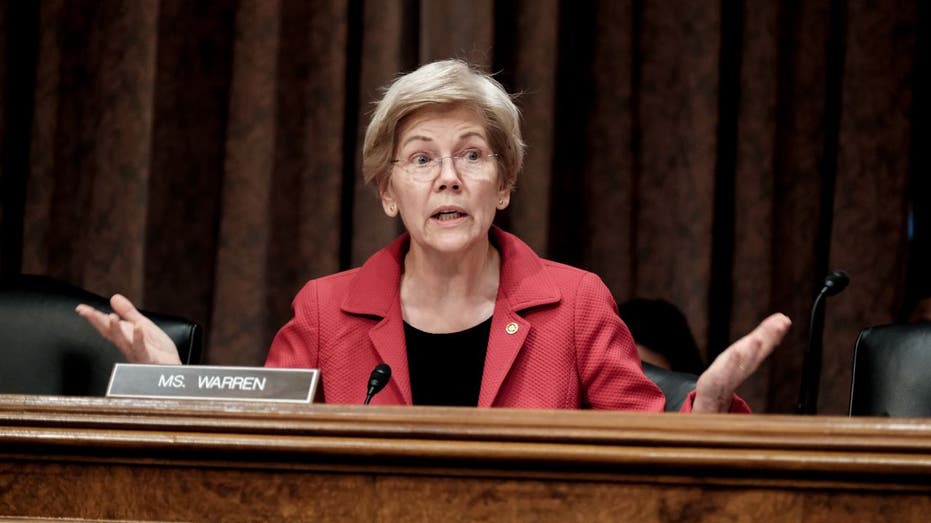
Sen. Elizabeth Warren, D-Mass., speaks during a Senate Banking Committee hearing on Capitol Hill June 13, 2023, in Washington, D.C. (Michael A. McCoy/Getty Images / Getty Images)
ELIZABETH WARREN RALLIES DONORS AS MARINE VETERAN, CRYPTO ATTORNEY JOHN DEATON ANNOUNCES SENATE CHALLENGE
Custodia, which operates an unlevered business model, sued the Federal Reserve Bank of Kansas City and the central bank’s board of governors in June 2022 as a result of the institution taking months to decide whether to issue Custodia a so-called master account, which provides state-chartered banks with a depositary account at the Fed, instead of them having to go through intermediary banks.
According to the application on the Fed’s website, the approval process usually takes five to seven days. In Custodia’s case, it stretched over two years.
Following the November collapse of FTX, the crypto exchange run by convicted fraudster Sam Bankman-Fried, the Kansas City Fed ultimately denied Custodia’s application in January 2023, citing uncertainty about Custodia’s executive team, financial status and the ability of the state of Wyoming to effectively regulate banks that custody crypto.

Former FTX CEO Sam Bankman-Fried arrives for a bail hearing at Manhattan Federal Court Aug. 11, 2023, in New York City. (Michael M. Santiago/Getty Images / Getty Images)
For many honest crypto firms still hoping to get access to the U.S. banking system, the collapse of FTX led to a domino effect just four months later as several crypto-related companies and legacy institutions like Silicon Valley Bank, Silvergate and Signature banks imploded due to the liquidity crunch.
As a result, the nation’s banks became warier than ever about associating with firms that did business with crypto.
Custodia believed its unique business model, which proposes holding greater reserves than the amount of customer deposits to mitigate liquidity risks, would help convince the Fed to look beyond it as a potential liability.
It was mistaken.
Custodia took the denial of its application as a politically motivated attempt to block its access to the central banking system due to its affiliation with crypto, now on the government’s radar as a fraudulent industry due to the antics of Bankman-Fried.
Custodia amended its lawsuit after the denial, stating its belief that the Fed’s board of governors in Washington may have unlawfully intervened at the Kansas City branch to influence its decision. To support this claim, Custodia cited prior positive engagement with the Kansas City Fed staff before the denial and pointed to what it viewed as a dubious reversal in its decision to deny.
The Fed, for its part, maintained that Congress gave it full discretion to approve or deny depository institutions, regardless of eligibility.
In suing the Fed, Custodia hoped that a neutral judge would see its rationale that the central bank’s actions were the result of a hostile federal government intent on choking off the crypto industry from the lifeblood of the federal payment system. It also hoped it would help put fellow state-chartered banks on a level playing field with federal institutions in terms of access to the Federal Reserve.
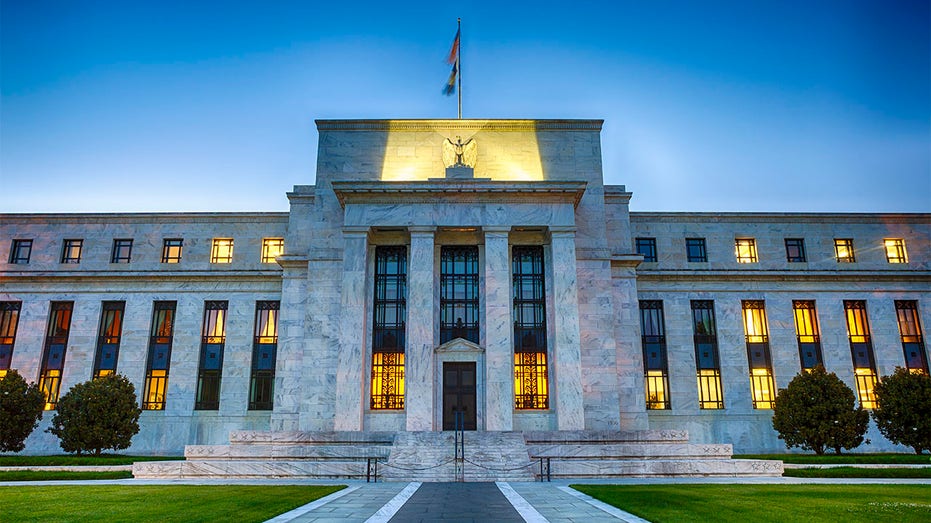
The Federal Reserve Building in Washington, D.C. (iStock / iStock)
It’s not the first time the Fed has said no to a state bank seeking a master account. Since 2015, the Fed has denied 33 uninsured state-chartered institutions, prompting critics to worry the central bank has given itself too much power by turning itself into a quasi-chattering entity.
It’s also not the first time the Fed has faced a lawsuit for seemingly arbitrarily cutting off a bank due to its clients that deal in businesses not sanctioned by the federal government.
CRYPTO NO LONGER OUTSIDER AT FAMED MIAMI BEACH ETF CONFERENCE
In 2015, Colorado-based Fourth Corner sued the Kansas City Fed for not giving it access to a master account because of its affiliation with marijuana-related businesses. After being continually rebuffed by the Fed, the company said it would only cater to ancillary marijuana firms and organizations, not to those that dealt directly with the substance. Under these terms, the Fed said it would “conditionally grant” the bank a master account.
Toomey and many others who followed the case were reasonably confident of a positive outcome for Custodia based on Skavdahl’s opinion in his June 8 denial of the Fed’s motion to dismiss the case against it.
For starters, he criticized the Fed for taking “longer than the gestation period of an elephant” to process Custodia’s application. He also said the rules Congress laid out for the Fed cannot be interpreted as giving the institution carte blanche to approve or deny master account applications, throwing cold water on the Fed’s argument that it has full discretion to approve or deny institutions on any grounds it sees fit.
Skavdahl also denied the Fed’s request to throw out the case, ruling that Custodia made plausible arguments that the Federal Reserve’s board of governors may have violated the Administrative Procedure Act by possibly intervening in the denial of Custodia’s application. He also said Custodia made reasonable arguments that it might qualify for relief under the Mandamus Act, which would have essentially forced the Fed to provide it with a master account.
TOP HOUSE REPUBLICAN SAYS BIDEN ADMIN ABUSING POWER TO TARGET BITCOIN MINERS
That’s why Friday’s decision, which stated the Fed is not legally required to provide eligible institutions with a master account and that Custodia lawyers failed to prove the board of governors influenced the Kansas City Fed’s decision to deny its account, came as a shock to many, including Custodia executives and experts who were involved in the case.
“It is completely contradictory and inconsistent to his prior statements,” said Toomey, “and the fact he offers no explanation – I trust and hope that will be a relevant factor in any appeal.”
While Toomey says he doesn’t know what made the judge change his mind, he tells FOX Business he believes it’s the byproduct of the federal government’s capricious opposition to the digital asset industry.
“Custodia should have been granted FDIC insurance, but because the FDIC is politicized and has chosen arbitrarily that they will disfavor this entire sector, that’s what’s sent us down this path,” he said.

The Federal Deposit Insurance Corporation (FDIC) building March 17, 2023. (Celal Gunes/Anadolu Agency via Getty Images / Getty Images)
In January 2023, the same month the Kansas City Fed denied Custodia’s master account application, the Fed’s board of governors, the Federal Deposit Insurance Corporation and the Office of the Comptroller of the Currency issued warnings to member banks about the risks of associating with crypto, highlighting liquidity headwinds that could be detrimental to their balance sheets.
One of the Fed’s arguments for rebuffing Custodia’s application is that it is not FDIC-insured, despite Custodia’s attempts to seek insurance in the past. However, the FDIC, as Toomey mentioned, won’t insure crypto-related businesses.
GET FOX BUSINESS ON THE GO BY CLICKING HERE
The Fed’s database also lists more than 500 master account holders that are not federally insured and a handful of trust companies that are legally prohibited from accepting deposits, such as Fidelity Management Trust Company and Raymond James Trust Company. The State of Texas Comptroller of Public Accounts also has a master account with the Fed.
In its summary judgment brief, Custodia’s lawyers raised this, questioning why the Fed was granting access to Texas’ chief tax collector and a slate of non-banks while denying access to eligible depository institutions like Custodia, Connecticut-based Narrow Bank and California’s PayServices.
The Federal Reserve did not immediately respond to a request for comment.
The timeline for a potential appeal by Custodia is unclear, but the bank seems determined not to go down without a fight.


